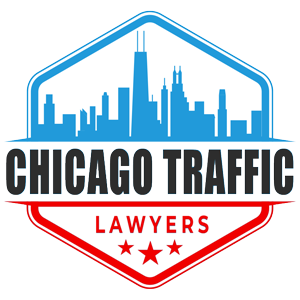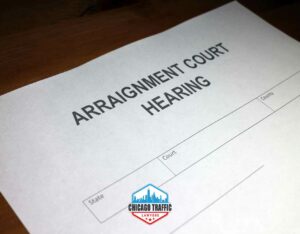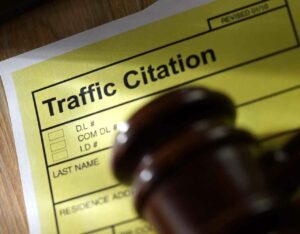One of the reasons your license could be suspended in Illinois is due to committing too many traffic offenses in a short amount of time. It is important to stay on top of your driving record if you live because if you have three traffic violation convictions within a year, your driver’s license will be suspended.
If you have been charged with traffic convictions or have received a notice of suspension, it’s important to take the issue seriously and seek legal advice from an experienced lawyer right away.
Our Chicago traffic firm can provide you with a free consultation to help you understand the charges against you, the potential penalties you face, and what options are available for fighting them. Call us at (773) 888-0365 to get started.
Table of Contents
The Illinois Point System
When it comes to dealing with traffic violations in Illinois, Illinois has a traffic point system that assigns a certain number of points to a driver’s license every time they commit an offense or get a traffic ticket. Depending on the severity of the offense, the number of points assigned can range from five to fifteen.
Minor offenses like slightly speeding over the posted speed limit are usually assessed five points, and more serious offenses like driving at a speed dangerous for prevailing conditions can incur ten or even fifteen points.
If a driver does accrue too many points in their license record due to traffic violations, their license or driving permit may be suspended. This means that until all accumulated points have been cleared from their record, they will not legally be allowed to operate a vehicle in public.
In order to clear points from their license record, drivers generally must complete an approved defensive driving course, attend traffic safety school, or attend court proceedings as mandated by state laws.
What Tickets Count Towards Your Suspension
There are many traffic tickets that count as reasons for suspension. Getting three moving violations within a 12-month period can lead to an automatic suspension of your license. A moving violation is any infraction related to the safe operation of a motor vehicle or that increases the likelihood of an accident or injury. Examples include speeding, running a stop sign, and reckless driving.
In the Illinois Vehicle Code, Chapter 11 gives a list of all the violations that count toward the initial suspension of your license. It is important to know if the citation you receive includes an “11”, as this indicates that it is categorized into the Chapter 11 moving violation category, which counts towards your license being suspended.
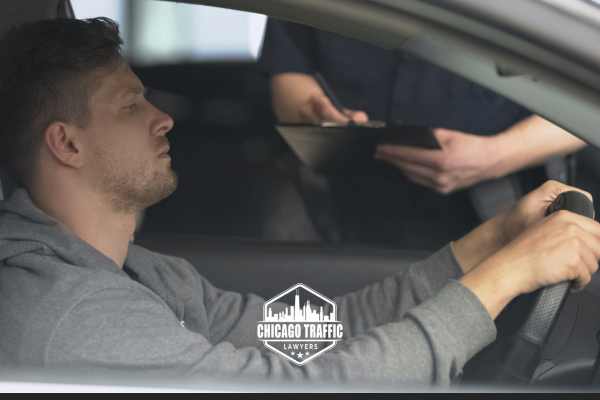
This being said, there are other driving offenses not found in Chapter 11 also known as non-Chapter 11 violations that count towards suspension of one’s license as well.
For example, if you fail to stop under signs mentioned by state legislation and resulting in convictions, then this violation can contribute toward getting your license suspended in due time. This is why it is wise to remain aware of all applicable traffic laws and regulations established by the state of Illinois in order to avoid any potential for receiving your driver’s license suspended or revoked.
Can I Lose My License for Speeding?
In Illinois, speeding is a serious infraction that can result in several consequences ranging from a few hundred dollar fines to criminal misdemeanor charges. Depending on the extent of your violation, if you are cited for speeding, you could be subject to license suspension or revocation.
For instance, the state reserves harsher punishments for drivers who speed excessively at more than twenty-five miles per hour over the posted speed limit with heavier fines and criminal misdemeanor offenses.
Even minor cases of speeding can also lead to a driver’s license suspension or revocation under certain circumstances such as failing to pay the speeding ticket, accumulating too many points on your driving record, or participating in extreme speed competitions known as “drag racing“.
To avoid these harsh penalties in Illinois, you should take caution and obey all speed limits when operating a vehicle. In addition to avoiding unnecessary fines and license suspensions related to speeding tickets, practicing safe driving habits will keep you and other motorists safer on the roads. Furthermore, investing time in understanding Illinois’ traffic laws will help make sure you do not inadvertently break them by violating any speed limits across the state.
Other Ways to Lose Your License
Moving violations are the most common suspensions. However, there are other ways that you can inadvertently have your license suspended including both petty offenses and felony offenses. Most notably, if you’ve accumulated a set amount of unpaid tickets for moving violations, parking offenses, or even tollway fees, the state could potentially suspend your driver’s license until all fines have been paid in full.
It’s important to remember that ongoing debt associated with unpaid tickets can pile up quickly and result in long-term consequences like the loss of one’s license. To reinstate a driver’s license after a suspension due to this type of offense, anyone guilty would have to pay a reinstatement fee of no less than $70 plus an additional $50 administrative fee before acquiring their license once more.
Other ways you can lose your license quickly are driving under the influence, failing to appear in court for a traffic violation, reckless driving, refusing to take a breathalyzer test or another DUI test, fleeing the scene of an accident, and leaving the scene of an accident involving injury or death. If you have lost your license due to these reasons, feel free to reach out to our experienced traffic lawyers to represent you in your legal case.
How Long Will My Suspension Be?
When it comes to suspended licenses, the amount of time a suspension will last depends on the particular offense that prompted the suspension. Generally, if your license is suspended for an infraction related to driving such as a DUI or moving violation, your suspension could be relatively short such as a month’s suspension, or significantly longer such as six months or more.
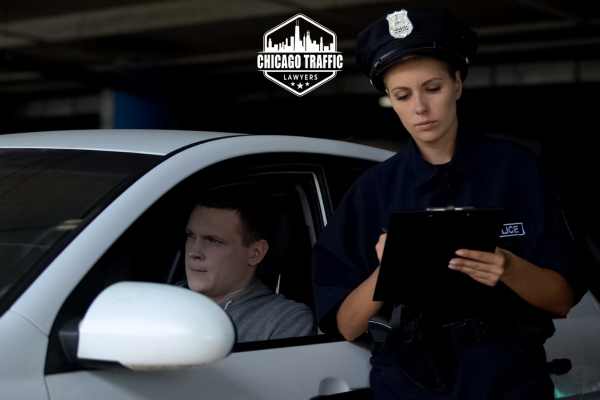
On the other hand, revocations are much more serious than suspensions and last much longer. Unlike suspensions that have an expiration date, revocation means you have lost your driving privileges indefinitely until you appear before the Secretary of State and prove some mitigating circumstances (such as taking a driver safety course).
Revocations can last anywhere from one year to permanent revocation. Therefore, when facing a potential loss of driving privileges it is important to understand the difference between suspensions and revocations so that you know exactly how long those restrictions will remain in place.
How Do I Get My License Back?
Having your driver’s license suspended or revoked in Illinois affects almost every aspect of your everyday life. Without a valid driver’s license you may be unable to commute to and from work, drop off/pick up children from school, run errands, and more. Understandably, many people want to get their suspended or revoked driver’s license back as quickly as possible.
The process can be confusing though and the steps that need to be taken can depend on why your driver’s license was suspended or revoked in the first place. For instance, if it is due to unpaid parking tickets, proof of payment will likely need to be provided along with any applicable fees.
Additionally, if it is due to too many unresolved traffic citations or other criminal offenses being committed while driving there will usually be further steps that must be taken such as completing a court hearing for reinstatement. Knowing these details as well as speaking with a lawyer familiar with this area of law can help ensure a successful hearing when dealing with your suspended driver’s license in Illinois.
Chicago Traffic Lawyers is Here to Help, Call Today!
Having your driver’s license suspended or revoked can be a difficult situation to overcome, but it is possible to get it back. Depending on the severity of the wrongdoing that led to the loss of your license, you may be willing to go through the court hearing process to regain your driving privileges. To do so, you may need to receive drug treatment, complete traffic school, or attend an adult driver education course.
Our knowledgeable defense lawyers at Chicago Traffic Lawyers are here to help! With a skilled traffic attorney on your side, you will receive experienced legal representation to help you get your license back and get a clean driving record. Call us today at (773) 888-0365 for a free consultation!
